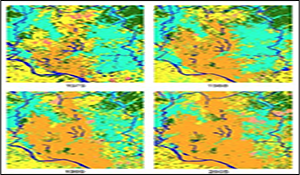
Understanding Megacities with the ISR Paradigm
Understanding Megacities with the Reconnaissance, Surveillance, and Intelligence Paradigm. Author | Editor: Ehlschlaeger, C. (ERDC). Given the challenges of declining DOD budgets while improving our ability to monitor megacity populations, this white describe many of the issues facing the DOD for phase zero operations and collecting theinformation necessary should conflicts escalate. The overriding goal of […]
Continue Reading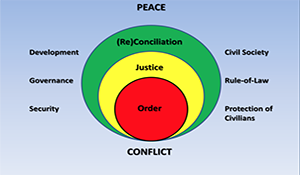
Socio-Cultural Analysis with the ISR Paradigm
Socio-Cultural Analysis with the Reconnaisance, Surveillance, and Intelligence Paradigm. Author | Editor: Ehlschlaeger, C. (ERDC). Socio-Cultural Analysis (SCA) has evolved rapidly over the past decade as conflicts in Afghanistan and Iraq have forced the DOD to reappraise the techniques used to collect information about the populations in conflict zones. As these two major con- flicts […]
Continue Reading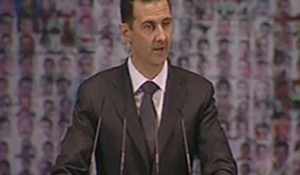
Leader Assessment of Bashar al-Assad (Part I)
A Multi-disciplinary, Multi-method Approach to Leader Assessment at a Distance: The Case of Bashar al-Assad. Author | Editor: Kuznar, L. (NSI, Inc), Suedfeld, P. (University of British Columbia), Spitaletta, J. (Johns Hopkins University/Applied Physics Laboratory) & Morrison, B. (University of British Columbia). This report suggests potential types of actions and messages most likely to influence […]
Continue Reading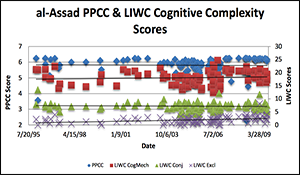
Leader Assessment of Bashar al-Assad (Part II)
A Multi-disciplinary, Multi-method Approach to Leader Assessment at a Distance: The Case of Bashar al-Assad (Part II: Analytic Approaches). Author | Editor: Kuznar, L. (NSI, Inc) & Suedfeld, P. et al. (University of British Columbia). This report suggests potential types of actions and messages most likely to influence and deter Bashar al-Assad from using force […]
Continue Reading
7th Annual SMA Conference – What Now, What Next?
7th Annual SMA Conference: Over a Decade into the 21st Century…What Now? What Next? Author | Editor: Canna, S. & Popp, G. (NSI, Inc). The 7th Annual Strategic Multilayer Assessment (SMA) Conference was held at Joint Base Andrews from 13-14 November 2013. The conference was focused on global megatrends and their implications in all spheres […]
Continue Reading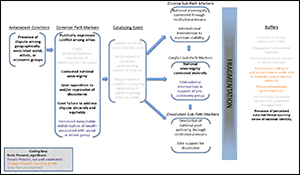
Pathway Indicators Analysis of Pakistan
South Asia II: NSI Pathway Indicators–Pakistan’s Future: Analysis of the Fragmentation and Muddling Through Hypotheses. Authors: Dr. Allison Astorino-Courtois, Dr. Belinda Bragg, Danielle Brickman, Sarah Canna, Abigail Desjardins, George Popp, Robert Popp, and Richard Williams (NSI, Inc). This report supported SMA’s Geopolitical Stability in South Asia project. For additional information, please visit the South Asia […]
Continue Reading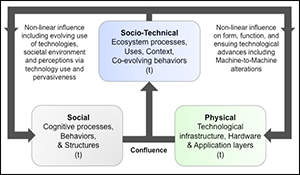
A Multi-Layer Assessment of Terrorism Current & Future
Over a Decade Later…What Now? What Next? A Multi-Layer Assessment of Terrorism in its Current and Future Manifestation Author | Editor: Cabayan, H. (Joint Staff), Astorino-Courtois, A. (NSI, Inc), Yandura, M., Sitterle, V. (Georgia Tech), Canna, S. & Popp, G. (NSI, Inc). This report marries contemporary social science theory, applied research, and operational experience to […]
Continue Reading
Perspectives on Terrorism and Responses to It
Looking Back, Looking Forward: Perspectives on Terrorism and Responses to It. Author | Editor: Cabayan, H. (Joint Staff), Sitterle, V. & Yandura, M. (Georgia Tech). This white paper is a follow-on report to a recent publication entitled “Over a Decade Later…What Now? What Next? A Multi-Layer Assessment of Terrorism in its Current and Future Manifestation.” […]
Continue Reading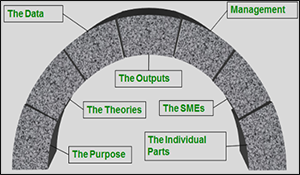
Social Science Validation and Validity Concepts
Humans in the Loop: Validation and Validity Concepts in the Social Sciences in the Context of Applied and Operational Settings. Author | Editor: Cabayan, H. (Joint Staff), Ehlschlaeger, C. (ERDC), McGee, A. (Naval Postgraduate School) & Ackerman, G. (University of Maryland, START). Threats in the 21st century are increasingly complex, requiring multiple perspectives and disciplines […]
Continue Reading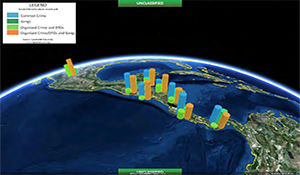
New Face of Transnational Crime Organizations (TCOs)
The ‘New’ Face of Transnational Crime Organizations (TCOs): A Geopolitical Perspective and Implications for US National Security. Author | Editor: Riley, B. (OSD/RRTO), Kiernan, K., St. Clair, C. (Kiernan Group) & Canna, S. (NSI, Inc). Office of the Secretary of Defense President Barack Obama: Significant transnational criminal organizations constitute an unusual and extraordinary threat to […]
Continue Reading